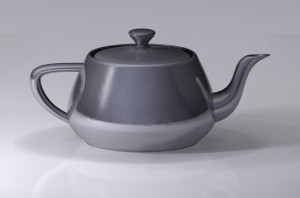What’s your favourite word? An obvious question with an unobvious answer

We all have them. Like favourite names for boys and girls, some are more common than others. For example, ‘serendipity’ is the ‘John’ of lexiconical love-ins. It’s easy to see why. With its playful cadences, soft female tones, and almost-magic meaning, it is easy to fall in love with.
It’s also a bit boring. Which is why when magazines or authors ask for people’s favourite words it inspires wordsmiths to try and out-do one another via championing evermore obscure words. When the BBC asked this in 2008 it was inundated with the likes of omphaloskepsis (self-absorbed, navel-gazing) and sphygmomanometer (a machine that takes your blood pressure).
All fine words. But I prefer beauty to be hiding in plain sight. My favourite word is ‘teapot’. I know, how British. But say it aloud a few times. Let your tongue enjoy its citrus flavour as it skips through three effervescent consonant sounds in only six letters. It is vocal sherbet in two syllables. It is wonderful to my ears. And it is used every day. Hopefully making your morning cuppa will never be the same again.
I’ll admit that my next favourite word at the moment is circadian (as in circadian rhythm, your body clock, or my as yet unformed French jazz fusion band), which unless you like to bore your friends with talk of your sleeping patterns, is unlikely to be frequently used. I just enjoy how it chirrups like an insect.
But I encourage you to reassess those words that we thoughtlessly spit out daily. Take a second look at the workhorses of the dictionary that power our conversations. Amongst the verbiage there are diamonds.
When next asked for your favourite word, don’t simply dust down a Victorian phrase to describe a drunken Irishman or an antiquated Scottish word for sex (although these are indeed rich seams). Such a reflex is like people who have a ‘good room’ in their house that goes unused and is never enjoyed. Instead, surprise them and sing ‘teapot’. Or ‘pepper’. Or…
____________________________
Edd McCracken lives in Scotland, works for an ancient university, and writes about culture for fun. Follow him on Twitter: @EddMcCracken

















